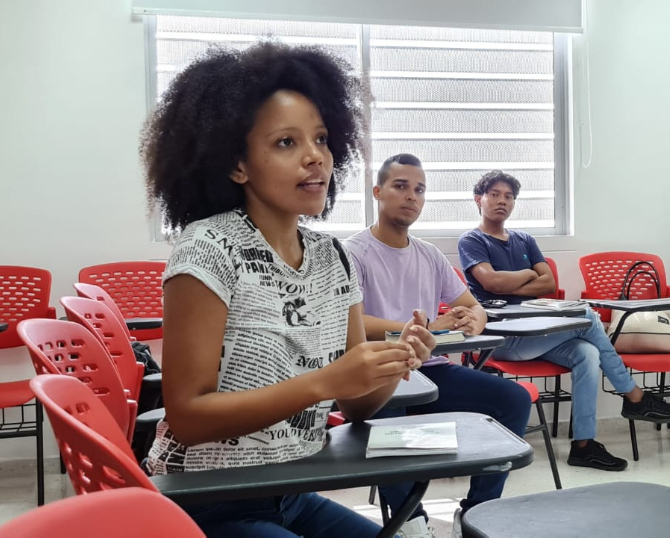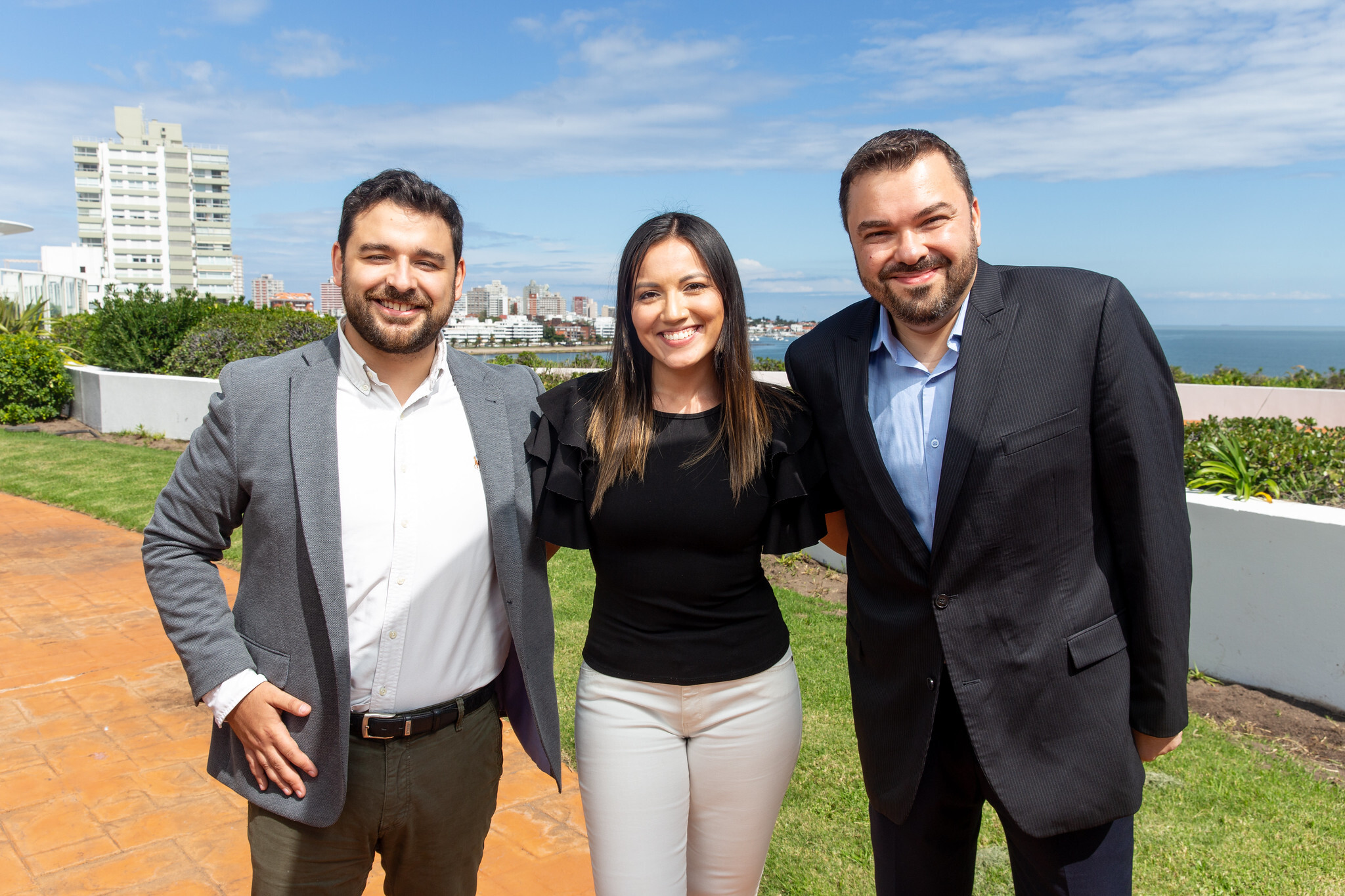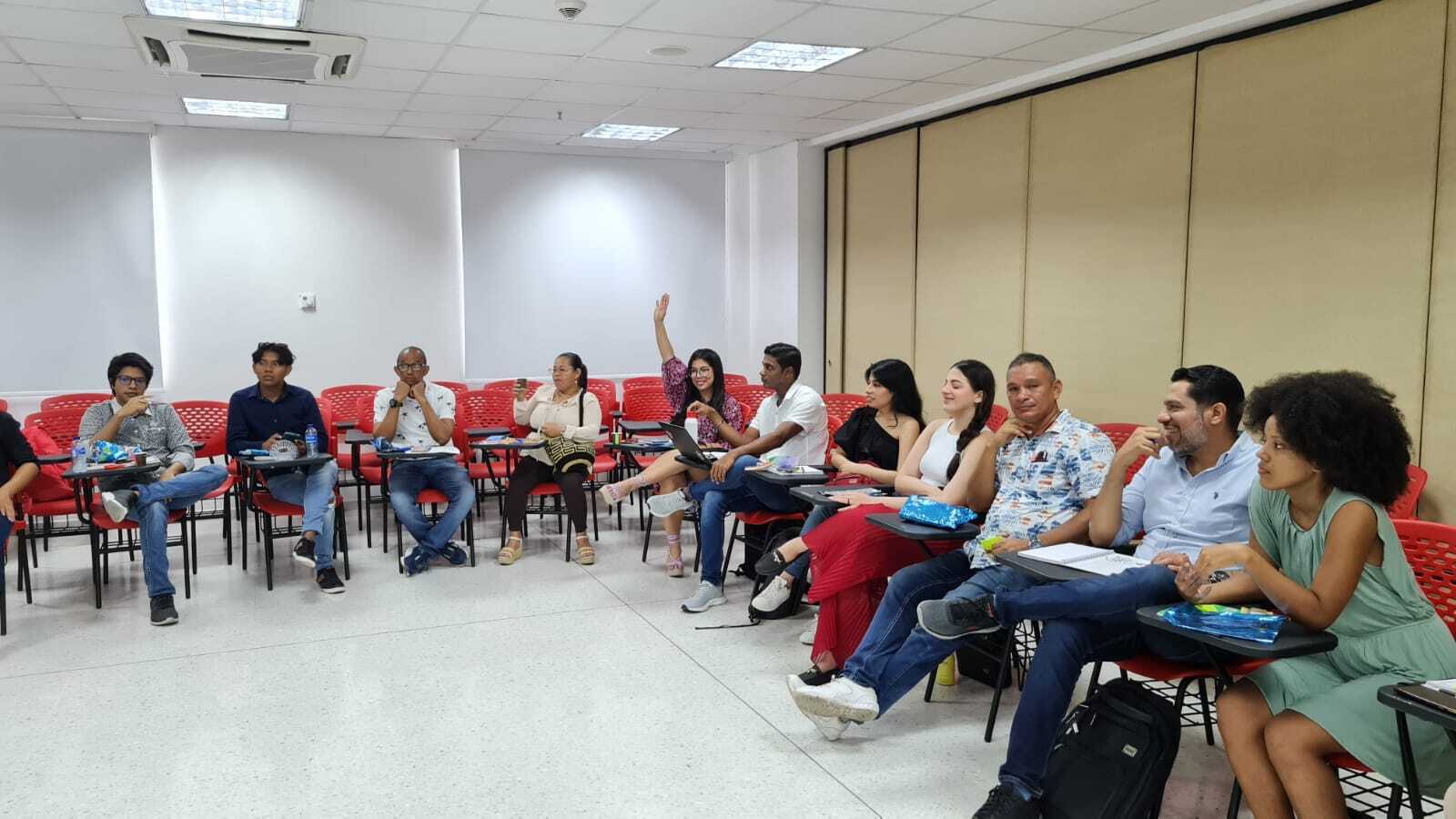Unleashing Entrepreneurship
Academy in Colombia Opens the Door to Opportunity


Like many Colombians, Juanita Solano Botero warmly welcomed the announcement in 2016 of a historic peace agreement between the government and the Revolutionary Armed Forces of Colombia (FARC), a Marxist-Leninist guerrilla group. The agreement was broadly acclaimed as the culmination of a 50-year conflict that had devastated the country. However, the initial easing of tensions did not halt the violence many individuals endured daily at the hands of armed and criminal groups, especially in rural and remote areas beyond the reach of law enforcement and the judiciary.
While many Colombians grew disheartened by this harsh reality, Juanita and her colleagues took action, offering their country a pathway to hope and prosperity through the principles of freedom, particularly emphasizing the importance of entrepreneurship in a free market.

The Instituto de Ciencia Política Hernán Echavarría Olózaga (ICP) is committed to defending economic freedoms, minimizing government intervention, and encouraging entrepreneurship within a competitive and free-market process to further peace and prosperity in Colombia. Under Juanita’s leadership, the “Academia ICP” furthers this core mission by equipping ordinary Colombians with the necessary skills to become effective entrepreneurs while demonstrating how a brighter future for the country is rooted in freedom.
The Academia ICP offers a broad range of training programs designed to enable a diverse set of individuals to improve their lives and bring prosperity to their communities. ICP addresses the root causes of violence that have troubled the country for generations by training corporate employees, legislative advisors, political candidates, social leaders, youth, women, local government officials, and entrepreneurs, among other audiences. Through a variety of in-person and virtual programs, they have reached over 23,000 people.
For Juanita, the academy represents more than abstract values; it’s about providing people with a reason for hope in times and places where hope may be scarce. “Participants in our programs realize they have opportunities in a free environment,” she asserts. “They recognize that in Colombia, a country often described as troubled with no opportunities, necessitating more state intervention, we teach that there are ways to escape poverty and live in peace through the institutions of economic freedom.” At a time when the Latin American region faces numerous populist and anti-liberal governments, it is crucial for citizens to be aware of this alternative perspective.
Among its most sought-after workshops is the “Emprender sin Depender” (Entrepreneurship without Dependence) program, aiming to break the paradigm of state involvement in entrepreneurship and promote practical skills necessary for becoming successful entrepreneurs. This program has been delivered in cities such as Cali and Pereira, and in violence-affected municipalities like Mapiripán, working directly with communities to help them start and grow small businesses.
By aiding small business owners and aspiring entrepreneurs, the Academia ICP is fostering alternatives to drug trafficking and other organized crime activities that have rendered parts of Colombia dangerous. Regular participants in its courses often establish the types of businesses that lay the groundwork for community prosperity and stability, gaining practical tools for operational growth, thereby creating more employment opportunities in the process. Juanita described how eager these individuals were to learn about operating successful and growing businesses, improving their communities, and persisting on the path out of poverty.

The program lineup also highlights training for leaders and potential political candidates, aiming to elucidate the significance of the private sector in local development and the necessity of establishing conducive institutional environments for entrepreneurship. Moreover, it addresses the costs associated with creating obstacles and barriers for businesses.
Additionally, the Academia ICP offers training on how policymakers can defend against disinformation efforts promoted by authoritarian regimes like Russia, China, and Iran. It also provides specialized courses on effectively using social media to advocate for freedom ideas amidst political debate during electoral periods.
The academy has seen exponential growth in recent years, bolstered by grants and professional development training from Atlas Network. Although primarily focused on Colombia, the quality of Academia ICP’s training has garnered interest from individuals across Latin America. In acknowledgment of these accomplishments, ICP received an additional grant as a finalist for Atlas Network’s annual Latin America Liberty Award.
“This has been immense,” Juanita said. “We are reaching places where public universities do not reach and where freedom ideas have not been discussed because the educational offerings are limited and controlled by public school unions. This can grow much, much more.”